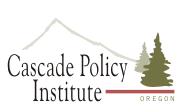 By Kathryn Hickok
By Kathryn Hickok
Cascade Policy Institute
Fifteen million. That is the number of meals Blanchet House of Hospitality estimates it has served to the needy in Portland since 1952. Blanchet House originated as a Catholic social and service group started by University of Portland students in 1938. Today, Blanchet serves an estimated 700 to 900 people every day in Old Town/Chinatown. If fifteen million people stood next to each other, the distance would stretch from about the North Pole to the Equator.
Nearly forty years ago, a Salem priest wanted “to provide a safe and loving home” for pregnant teenage mothers so they wouldn’t believe their only option was an abortion. The Father Taaffe Foundation says: “They were given a home, not just an address. They were treated with respect, love and care, some for the first time in their lives. They were given a sense of safety, structure, and direction; an example of family life and hope for the future.”
Monday through Saturday, volunteers provide help for those most marginalized and forgotten at Saint André Bessette Catholic Church, better known by its former name―the Downtown Chapel. Says St. André Bessette’s mission statement: “Compelled by our faith, our parish honors the dignity of each person by providing hope, healing and hospitality to all who come to our doors.”
Catholic Charities is the professional social services arm of the Archdiocese of Portland. It offers housing assistance, disaster relief, human trafficking outreach, immigration legal services, pregnancy and adoption counseling and services, Hispanic outreach, and more. It provides these things “regardless of faith, race, marital status or condition in life. [Catholic Charities’] activities are based upon the fundamental belief in the dignity and sanctity of human life and the principles of Catholic Social Teaching.” Catholic Charities served 1,323 people in 1952. Today, Catholic Charities helps more than 100,000 Oregonians in need every year.
The Society of St. Vincent de Paul, with a highly active council in Portland, is a “worldwide Catholic organization of laypersons, open to all who wish to live their faith by loving and serving their neighbor….[M]embers…help those in need, regardless of race, ethnicity, creed, gender, orientation, handicap or religion.”
All of these organizations provide vital assistance to the needy in Oregon, all are inspired directly and explicitly by the faith of the people who work and volunteer for them, and all operate in accordance with the moral beliefs and values of the Catholic Church.
But organizations like these would not be considered “religious employers” by the federal government, because they do not exist solely for the purpose of serving members of their own faith.
Last summer, the Department of Health and Human Services (HHS) directed virtually all employers to include coverage of contraceptives, sterilization procedures, and abortion-inducing pharmaceuticals without copayment in their employee insurance policies. HHS subsequently published a final rule that requires many health insurers to charge all enrollees in order to cover the cost of other people’s elective abortions.
The HHS mandate on contraception, sterilization, and abortion has an extremely narrow conscience exemption only applicable to organizations whose purpose is solely to inculcate religious values and which employ and serve primarily members of their own faith. It will not include the vast majority of religiously affiliated or faith-based institutions like hospitals, colleges, schools, and social service organizations which may have moral objections to paying for or providing these products and services. Grimly dubbed “the parish secretary exemption,” it would apply mostly to houses of worship, not to ministries and charitable agencies which serve all people without discrimination.
For the federal government to attempt to force organizations like Catholic Charities to pay for or to provide contraception and abortion is absurd. Equally absurd is forcing Catholic organizations to assist only members of the Catholic Church or else to be considered “not religious”―and therefore subject to government regulations that violate their moral standards. In fact, this should be ruled unconstitutional.
Catholic social services are the fruit of people’s faith, but they don’t help others because the needy share that faith. Catholics believe that Christ’s words and example require them to reach out to all. Restricting assistance only to members of their religion is unacceptable to them. This is why forty-three Catholic dioceses, universities, Catholic Charities chapters, and other entities have brought a historic lawsuit against the federal government. Through the new HHS rules, the federal government, in effect, has created “two classes of religious organizations”―houses of worship which are exempt from its conscience-crushing directives, and service organizations which may have to violate their moral principles or stop serving the needy.
The Catholic Church, and Americans of all faiths or none who are uniting in defense of religious liberty, are not seeking special treatment under the law, but only the freedoms guaranteed by the First Amendment of the Constitution. The Archbishop of Washington, D.C., Cardinal Donald Wuerl, said, “Just as our faith compels us to uphold the liberty and dignity of others, so too, we must defend our own.” This First Amendment fight is not for believers’ freedom to worship behind church doors, but for their freedom to serve millions of their neighbors who stand outside, in accordance with their faith and moral values.
Kathryn Hickok is Publications Director at Cascade Policy Institute, Oregon’s free market public policy research organization, and a graduate of the University of Portland.
Disclaimer: Articles featured on Oregon Report are the creation, responsibility and opinion of the authoring individual or organization which is featured at the top of every article.

